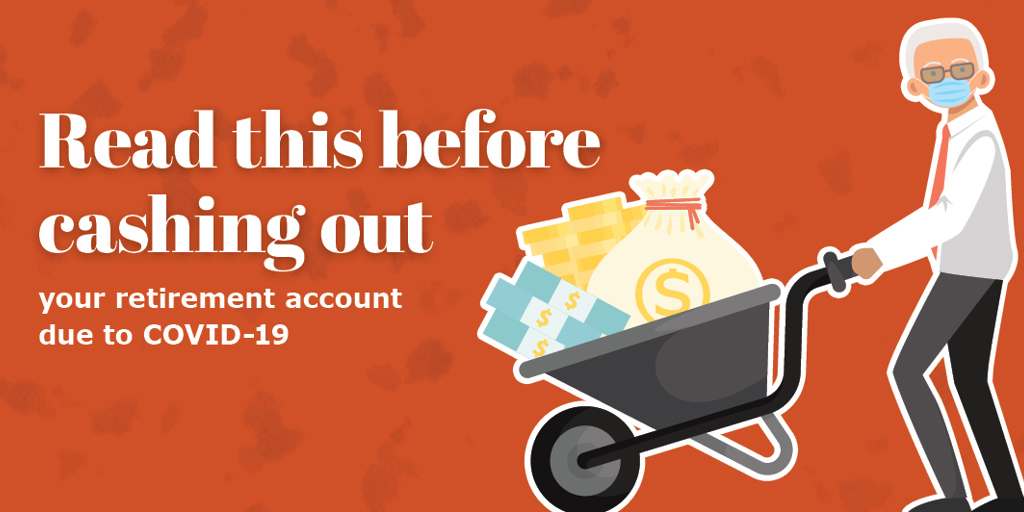


Read this before cashing out your retirement account due to COVID-19
The Coronavirus Aid, Relief and Economic Security (CARES) Act offers a provision to soften the economic impact from COVID-19. It authorizes the withdrawal of up to $100,000 from IRAs, or 401(k) retirement accounts, without penalty.
Under normal circumstances, the penalty for withdrawing from a 401(k) before the age of 59.5 would be 10 percent of the withdrawal, plus 20 percent for taxes. But that changes under the CARES Act, which Congress passed to provide financial relief to Americans affected by the COVID-19 crisis.
But that changes under the CARES Act, which Congress passed to provide financial relief to Americans affected by the COVID-19 crisis.
Here’s an overview of the rules for tapping into your retirement account this year:
- The 10 percent penalty will be waived for any COVID-related withdrawal.
- To qualify, you, your spouse or a dependent must have either been financially impacted by, or tested positive for, COVID-19. An impact includes being furloughed, having work hours reduced or being unable to work due to lack of childcare.
- Withdrawals have an aggregate limit of $100,000 from all plans and IRAs.
- While you will still owe income tax on your withdrawal, you can pay that tax over a three-year period. But if you repay the withdrawal within three years, you could recover the tax already paid by filing an amended tax return.
- You may use the money however you wish.
- COVID-related withdrawals are only in effect for 2020.
For additional information, please visit the IRS website.
Please note that not all plans qualify for COVID-related withdrawals, and employers can choose whether to participate. Consult with your employer before making a withdrawal.
Bottom line
Rightly regarded as a serious decision, tapping into your retirement is, and should be, a last resort. However, if taking a COVID-related withdrawal is your only option, take what you need and no more. After all, your retirement account is your financial safety net for later in life.
Recent Articles
Join our e-newsletter
Sign up for our e-newsletter to get new content each month.






















